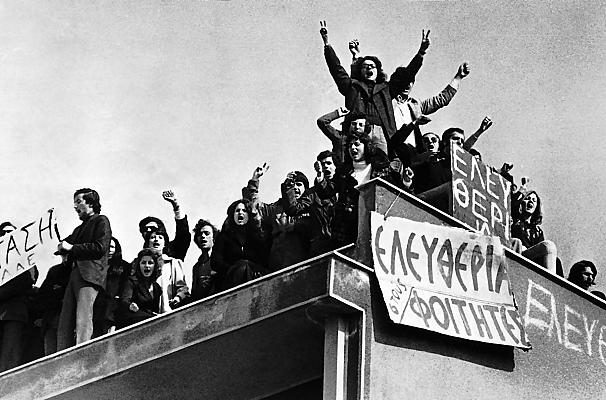

On the 17th of November every year, the official celebration of the anniversary of the Polytechnic uprising in 1973 against the military dictatorship takes place. In the days leading up to the anniversary, a three-day celebration takes place in the university faculties, culminating in a procession.
However, with decision no. 1029/8/18 public assemblies were banned throughout the country for the period between 6am on 15 November until 9pm on 18 November 2020. This was justified on the basis of the serious public health risk of spreading the coronavirus COVID-19. The decision was the subject of much criticism, with concerns raised about the legitimacy of the ban.
In a statement, the National Commission for Human Rights pointed out that this decision raises issues in respect of the constitutional, EU and international requirements that must exist in order for the restriction of this right to be legal, as enshrined in Article 11 of the Constitution, Article 11 of the ECHR and Article 12 of the EU Charter of Fundamental Rights.
The Hellenic League for Human Rights issued a press release, pointing out that a) the general suspension of the right to assemble through the above decision does not comply with the standards set by the Constitution and the law; b) in any case the universal and non-discriminatory prohibition of any gathering violates the principle of proportionality; and c) “The obvious authoritarian paternalism” of the decision, combined, they say, with other recent events, creates the impression of a governing mentality “that is far removed from the principles of the rule of law.”
Amnesty International called on the Greek authorities to reverse the decision on the basis that it is a disproportionate restriction on the rights to freedom of expression and peaceful assembly, stressing that the pandemic should not be used as a pretext to silence critics, or for the undermining of human rights.
The Union of Judges and Prosecutors in its announcement of 15-11-2020 considered that this decision should be immediately revoked, stating that: “the state must protect public health during the pandemic, without going beyond the limits of the rule of law.” (see also 1, 2 in support of this view).
Opposition parties SYRIZA, KKE and MeRA25 released a joint statement opposing the decision for a total ban on public gatherings.
Lawyers and academics have also expressed concern about the legality and constitutionality of the decision (see this article for example). G. Sotirelis (a professor of Constitutional Law), in his articles on constitutionalism.gr (see 1, 2) considers the decision to have little legal basis and obvious constitutional problems, and states that, “the government, through the Chief of Police, uses the pandemic as a pretext not just to restrict the right, which is in principle legitimate and often necessary, but to actually suspend it, which is not allowed by the Greek Constitution, except under the – non-existent in this case – conditions for declaring the country as under siege.”
There were also arguments defending the constitutionality of the decision (see 1, 2, 3) while the Coordinating Committee of the Plenary Session of the Presidents of the Greek Bar Associations requested further information in order to judge the legality of the decision.
Applications for the annulment of the decision were filed before the Council of State (see 1, 2), but requests for an interim injunction (see 1, 2) and a request for suspension were rejected by the court.
Despite the ban, political parties and collectives announced their participation (1, 2) in marches across the country (1, 2), which, unfortunately, saw clashes and violence between police and participants (see 1, 2, 3, 4).
Respect for human rights is one of the key components of a state governed by the rule of law.
Any restriction of fundamental individual rights is lawful only if it takes place in a constitutionally permissible manner, subject to certain basic legal guarantees, such as the principle of proportionality and the prohibition of the infringement of the essence of the right.
The decision of the Chief of Police to prohibit without discrimination all public outdoor gatherings and the corresponding restriction of the right to assemble raises serious concerns as it does not seem to correspond with constitutional requirements.
The need to protect public health and to take measures to address the spread of the pandemic must not take place in a way that undermines respect for human rights and the rule of law.
Bank Account number: 1100 0232 0016 560
IBAN: GR56 0140 1100 1100 0232 0016 560
BIC: CRBAGRAA
![]()
In a time where the very foundations of democracy are gradually being eroded by the rise of extreme nationalism, alt-right movements, the spread of disinformation and corporate capture, the efforts of organisations such as Vouliwatch are more relevant than ever.
We rely on the generosity of each and every one of you to continue with our efforts for more transparency and accounta
By financially supporting Vouliwatch you support our litigation strategy, our campaigns for transparency and accountability in the political system, the development of new civic tech tools, our research projects and last but not least our impartial and accurate